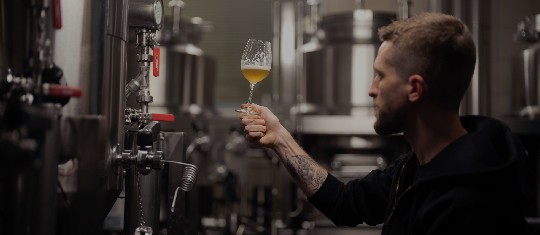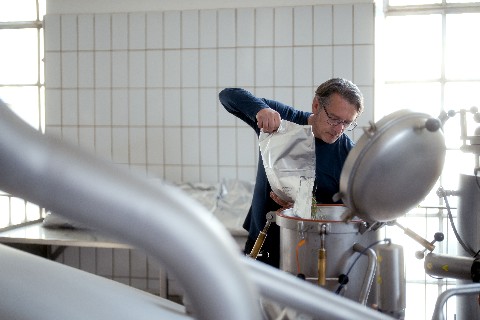With a shortage of skilled workers, logistics crisis and rising costs on the one hand and increasing sustainability requirements on the other hand - pressure is mounting from various sides for businesses.
While brewing associations predict a "painful consolidation phase," they also note that "the industry has proven to be extremely resilient in the past three years, and many companies have been able to successfully assert themselves in the market despite the crises." (German Brewers' Federation)
Special times call for special measures. At BarthHaas, we have been perfecting our products and consulting services to face the challenges and help ensure the success of the brewing industry together with our customers. We work closely with breweries in fine-tuning and optimizing processes, as well as recipe development.
Tank capacity is particularly crucial during these times. Tank capacity costs money. The better the tank space is utilized, the lower the costs. Optimal occupancy is practically mandatory when capacity limits are reached, allowing the maximization of output volumes. Nowadays, reaching the capacity limit can happen quickly due to investment delays or unforeseen construction delays. Even in the case of lower utilization resulting from a decrease in output, it is advisable to consolidate the volume in as few tanks as possible.
As is well known, the headspace in the fermentation tank for lager beers should be around 20 percent, and even more for a wheat beer. Valuable tank space is wasted in this process. One of our liquid hop products can really help here. HopAid Antifoam reduces foam volume to approx. ten percent and prevents excessive foaming altogether. This not only eliminates the additional cleaning effort caused by overflowing, but also reduces the risk of infection. A nice additional benefit is that this hop product can also increases bitter substance yield due to reduced foam losses, and simplifies tank cleaning by reducing trub residue. Optimizing tank occupancy save money and effort in a number of ways.
The issue of beer losses has gained a whole new relevance in these times. As many brewers know from experience, beer losses can reach up to eight liters per kilogram of T90 pellets in the whirlpool and up to 14 liters per kilogram of T90 pellets in the fermentation tank. In other words, with a dosage of 1 kg/hl, beer loss in cold hopping amounts to 14 percent! And that is a conservative estimate. Most brewers cannot separate the hop and yeast sediment cleanly, so they have to play it safe, resulting in even higher losses.
To avoid or reduce beer losses, we have several hop products in our portfolio. Depending on equipment, recipe, and brewery orientation, these can be used in different dosages and combinations. These products cause zero beer losses and can also have higher bitterness efficiency. Due to the absence of plant particle trub that binds bitter substances, fewer losses occur both in the whirlpool and during dry hopping.
Regarding hop aroma, targeted application of hop products can optimize dry hopping. Spectrum is a liquid hop product that can be used throughout the cold process, eliminating the need for expensive dry hopping equipment. Spectrum also reduces contact time during cold hopping and, consequently, the tank occupancy period. The beer can go into storage faster. Since Spectrum leaves no residues, there are no beer losses and therefore more beer to sell. Further cleaning efforts are also reduced which alltogether simplifies wastewater management. Optimized dry hopping has benefits on multiple levels.
High energy costs can be controlled by using pre-isomerized products. While they are not allowed according to the German purity law, like most hop extracts, they help brewers in other countries save money. This is because the isomerization of alpha acids through extended wort boiling is eliminated. Pre-isomerized products are also more sustainable since BarthHaas performs this process at a significantly larger scale and with a more efficient method. Additionally, these bittering products allow for the correction of fluctuations at the filter, making it much easier to ensure product consistency.
One-offs, seasonal products, and fast moving trends require quick responsiveness to market demands. In addition to the previously mentioned bittering products, this can also be achieved with hop oils, such as BarthHaas' Pure Hop Aroma (PHAs). Using these hop products, brewers can create multiple beers from a base beer, or develop new products and respond to trends more quickly at the filter. They can maintain their brewing processes unchanged and diversify only at the filter. This is much more cost-effective than constantly changing the entire brewing process for new recipes.
Our Brewing Solutions team advises breweries on the use and dosage of hop products, all the way to product development. We always consider the specific orientation, equipment, and economic viability of our customers:Thriving Together in an ever-changing world.



